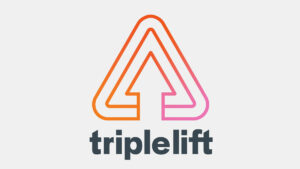Eric Berry, Co-founder and CEO at TripleLift shares a few snippets on TripleLift’s growth journey while discussing a few top trends in today’s adtech and digital ad spend market: _____ It’s good to be here! Thanks for having me! In 2012, my co-founders, Ari Lewine, Shaun Zacharia, and I were working at a major ad tech company, when we identified a problem we believed to be worth solving. Consumer platforms like Google and Facebook were creating these really compelling ad experiences – delivering ads directly into the feed of content, because they had scale and complete control of the content and ad experience. Meanwhile, ads across the rest of the internet were locked into fixed spaces and were interrupting consumers’ experiences altogether, resulting in underperformance for both marketers and publishers. The problem could be solved by creating better ad experiences — bringing what was working on the major platforms out to the open web. That idea launched the company and soon defined an entirely new category of digital media: Native Advertising. Since then we have applied that same idea – and much of the same technology – to build out products across display, branded content, online video and Connected TV. Marketing Technology News: TripleLift Reaches New Milestone: $1 Billion in Publisher Payouts Our mission has always been to make advertising work for everyone: publishers who seek greater monetization, advertisers who require better performance, and consumers who want better ad experiences. This was our initial thesis, and it remains true today with Vista’s backing. Our alignment with Vista offers us additional resources and investment to catalyze our mission. And, as we move into the next chapter of our business, marketers should expect further ad innovation – especially in Connected Television – and even greater reach as we continue to expand our business across Europe and Asia. The overall effectiveness of programmatic, including the ability to make an impact, often comes down to the choices made by a Supply Side Platform. We take that role seriously. Small businesses owned by People of Color, Women and members of the LGBTQ community have always faced challenges. Over the past year, many advertisers have prioritized supporting these communities with their media spend. One of the ways we’ve seen them take action with ad tech is by leveraging programmatic capabilities to target spend to Black, LGBTQ, Hispanic, AAPI, and Women owned publishers. In 2020, as the George Floyd protests were consuming the streets, TripleLift brought attention to the plight of these publishers through an exchange traded deal we call “Underrepresented Voices.” Our program, UNREP, directs dollars to those publishers, and thoughtful advertisers have jumped in to help by adding the deal to their media plans. We have had dozens of brands spend against this deal and it’s a great example of ad spend directly influencing social equality. Marketing Technology News: MarTech Interview with Paige R Leidig, Chief Marketing Officer at NetBase Quid Digital ad spend will continue to be driven by the accelerated shift to digital video, especially in Connected TV. But for advertisers to truly be able to connect with their audiences, our industry must – and will – deliver new ad formats and experiences beyond the traditional commercial break. Instead of focusing on breaks in programming, which is what more than 95% of all video ads have been going back to the 1980s, brands will start looking at the whole viewer experience and ask the question: “How can we make the video ad experience work for everyone?” That’s a very modern problem and it will get a lot of attention. The battle against fake news, hate speech and misinformation is far from over. While steps have been taken to stamp out bad actors, vigilance from advertisers, publishers and the ad tech community at-large continues to be required. I predict that brands will keep this issue front and center by eliminating reselling from buys, reviewing inclusion and exclusion lists on a regular basis, and requiring domain transparency from their ad tech partners. That might seem like a heavy lift, but it’s actually fairly straight-forward, and it has the potential to reform a lot of ills. Marketers must seek out ad tech partners who prioritize direct inventory sources. The programmatic ecosystem is rife with duplication and redundancy, and the result is inefficiencies for both the buy and sell-sides. For years, our industry has ruminated over “the lost 15%” of programmatic spend — the spend that often seems to go unaccounted for. But it doesn’t have to. Buying the most direct inventory is a big answer to this problem. Marketing leaders and CMOs should push their teams to seek out ad tech partners who offer inventory that has been directly contracted for through one-to-one relationships with publishers, not resellers. When no intermediary exchange or reseller is present, the result is better campaign performance and a positive impact to your bottom line. Marketing Technology News: MarTech Interview with Ed King, CEO and Founder at Openprise TripleLift is a technology company that is reinventing ad placement one medium at a time. Eric is Co-founder and CEO of TripleLift. Under his leadership, the company has more than tripled in growth each year and has been listed on Inc. Fast 5000, Deloitte’s Technology Fast 500™, and Crain’s New York Fast 50 three years in a row. The nearly 300 person company now spans three continents. Previously, Eric was a leader on the client services and product architecture teams at AppNexus, and an attorney at Simpson Thacher & Bartlett LLP. Eric received bachelor’s degree in computer science from MIT and a J.D. from New York University School of Law. Welcome to this martech chat Eric, tell us more about TripleLift? We’d love to hear about the company’s journey through the years…
TripleLift recently made news with Vista Equity Partners acquiring the majority stake in TripleLift’s business. What can marketers expect from TripleLift with Vista’s backing?
Can you talk about some of the most impactful ways in which you’ve seen marketers and advertisers use ad tech features to advance social equality over the past year (leading examples)?
What are some predictions you have for the future of digital ad spend?
And some predictions that you have for the future of martech and adtech?
Before we wrap up, a few top takeaways for marketing leaders and CMOs in 2021?

MarTech Interview with Eric Berry, Co-founder and CEO at TripleLift

[vc_tweetmeme]
[vc_tta_tabs][vc_tta_section title=”About TripleLift:” tab_id=”1544515685282-bf64247e-9d9aeec0-8908″][/vc_tta_section][vc_tta_section tab_id=”1544515685339-cf6c9bcd-6b1aeec0-8908″ title=”About Eric:“][/vc_tta_section][/vc_tta_tabs]
[vc_tweetmeme]











Comments are closed.